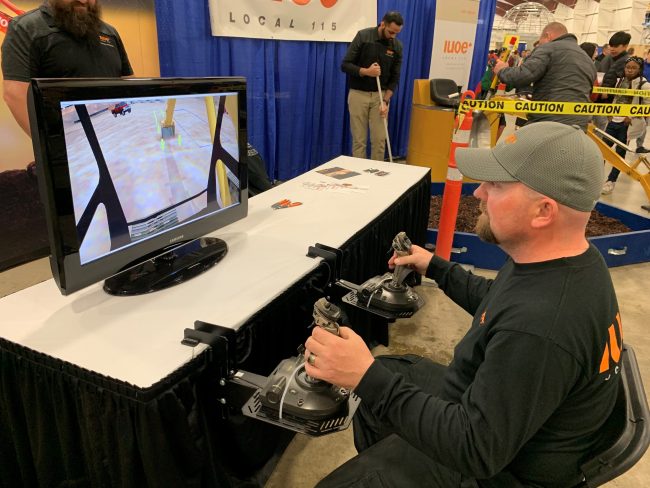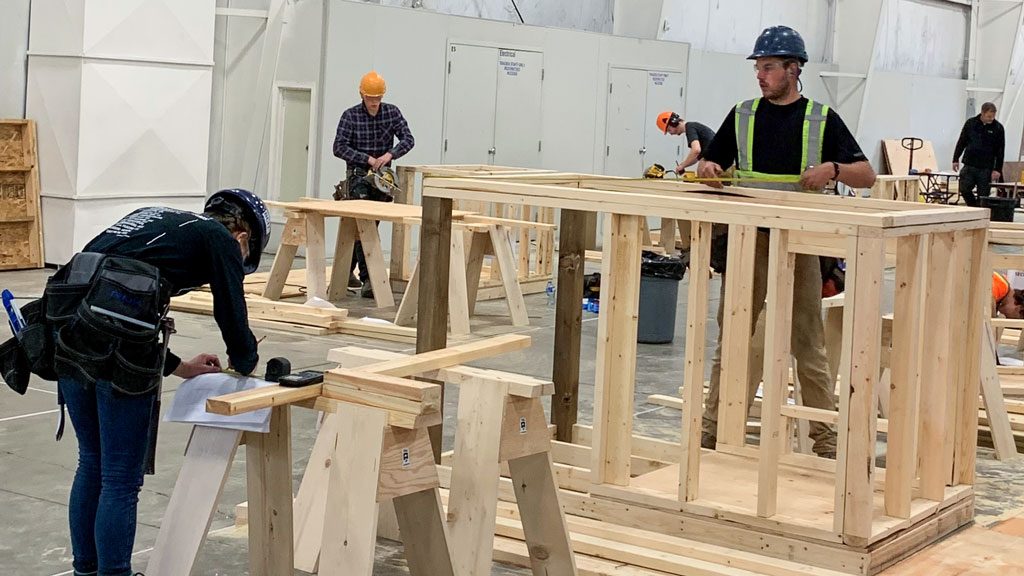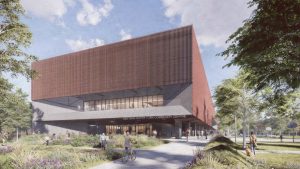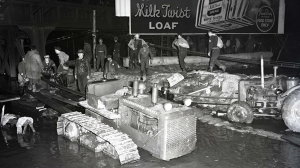An annual competition is giving the next generation of skilled tradesworkers a chance to prove their talents against their provincial peers.
The 2019 Skills Canada BC provincial competition took place on April 17 at the Tradex facility in Abbotsford, B.C. Staging areas filled with competitors at a secondary and post-secondary level filled the building along with booths with representatives from numerous associations, labour groups and corporations.
Secondary and post-secondary students in the carpentry competition competed against the clock and each other, with the secondary students building a doghouse and post-secondary students putting a children’s playhouse together from scratch.
Once complete, the structures were donated to charities.
To participate in the competition at the provincial level the two sets of students take similar paths, said
Thompson Rivers University School of Trades and Technology chairperson Tom Haag.
“We have a regional competition for all of the high school students and the regional winners comes here to compete against each other. For post-secondary competitors, they’re apprentices and they also have local competitions to vie for their spot,” Haag said.
University of Fraser Valley applied and technical studies associate professor Pat McGurk said the competitors participating in welding came from across the province.
“There are 11 schools being represented for the post-secondary competition and there’s 12 (represented) for the high school kids, who are all coming from all around the province as well,” McGurk said.
While speed is one of the factors during the competition, there are other criteria by which every entry is judged.
“They have six hours of actual working time, and, at the end of the day, a tie would go to the faster time, but we’re looking for quality, workmanship and definitely for safety, as well as housekeeping, how well they maintain their sites,” he said. “In the end, with the overall project, everything has to be built to code as well.”
“Both secondary and post-secondary are doing a 4.5-hour project and the post-secondary project is more extensive. They have a plan drawing they’re supposed to follow, with the measurements, dimensions and everything else. After 4.5 hours they stop and we grade them, whether they’re done or not,” said Trowel Trades Training Association instructor Larry Hyde.

McGurk said the welding competition has a similar emphasis on both quality and safety.
“Some marks are being judged on whether they’re wearing their safety glasses and gear. They’ll be judged on the accuracy of the final project, whether it meets the requirement of the drawing and then they’ll be looking at whether or not the welds are acceptable to industry standards and also whether they can interpret the drawings and make sure the welds are placed in the right location,” he said.
In the welding competition, McGurk said, participants are given an orientation where rules are explained and the specific welding equipment they use is introduced to them, followed by a look at the drawings and a chance to ask questions of the judges.
“Once that’s done they’re given the materials and they assemble the product according to the drawing,” McGurk said.
Judging is a complex and collaborative effort between the departments of regional training institutions, Haag said.
“We have instructors from the carpentry departments of various institutions and we bring them all together. It’s a volunteer position so people are spending their own time here,” Haag said, adding in the case of the post-secondary project, there are 790 marks available on a marking sheet used by the judges.
By mid-day the expansive Tradex floor was crowded with high school students from across the Lower Mainland.
Haag said competitions like Skills Canada BC drive interest in regional trades training programs.
“It’s meant to promote our programs on one side of things, but really it’s about the students and that they’re getting an experience here. It’s a friendly competition, but they take it pretty seriously. If you look around, you’ll see a lot of sweating happening,” he said.
While competition winners don’t earn points to an official tradesperson designation through the Skills Canada contest, there are career benefits to winning at the provincial and national level, Haag said.
“You can always say ‘I competed at the provincials of Skills Canada,’ and the gold medal winners in the secondary and post-secondary competitions have an opportunity to go to Halifax this year for the national competition,” he said.
“We’re facing a crisis because the baby boomers and the journeymen are all leaving. We’ve got nobody to take their places or not enough, so this is why we’re pushing the trade,” Hyde said.











Recent Comments
comments for this post are closed